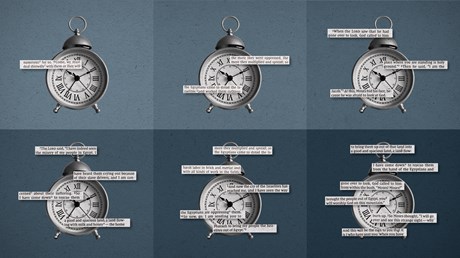Fifteen minutes of Bible reading may not turn every day around, but it’ll yield fruit at the right time.

When the first ATM was installed in my hometown in the 1980s, it felt like magic: Insert your card, take out cash.
Since then, we’ve learned to love not having to wait in just about every area of our lives. Products arrive at our doors within a day. Meals in a matter of minutes. Movies, books, and music appear on our devices instantly.
It’s wonderful. And it’s also worth weighing carefully. Rapid delivery teaches us that waiting is an enemy to be eliminated, standing between us and what we desire. With each quicker, more convenient development, we are attenuating our ability to wait.
But being able to wait is distinctly Christian. In fact, it is a mark of Christian maturity. The Bible speaks of waiting on the Lord, of being steadfast, and of bearing the spiritual fruit of patience. While most of us recognize that instant gratification is the habitat we inhabit, few have assessed how “waitlessness” may be forming us spiritually—specifically, how it may be shaping our approach to the Bible.
Around fourth grade, I was taught the spiritual discipline of spending “time in the Word.” Like many, I was encouraged to have a “quiet time,” 15 or 20 minutes in Scripture, preferably in the morning (because, you know, Jesus rose early in the morning). This practice was supposed to calibrate my day, to fill my spiritual tank for whatever the rest of that day might hold.
The underlying message: Have a quiet time, have a good day. Skip a quiet time, good luck. Combine that with an inclination toward instant gratification, and I began to see any quiet time that didn’t yield immediate emotional warmth or peace as essentially a fail.
I grew to approach spending time in the Word primarily ...
from Christianity Today Magazine
Umn ministry


.gif)

.gif)
.gif)
